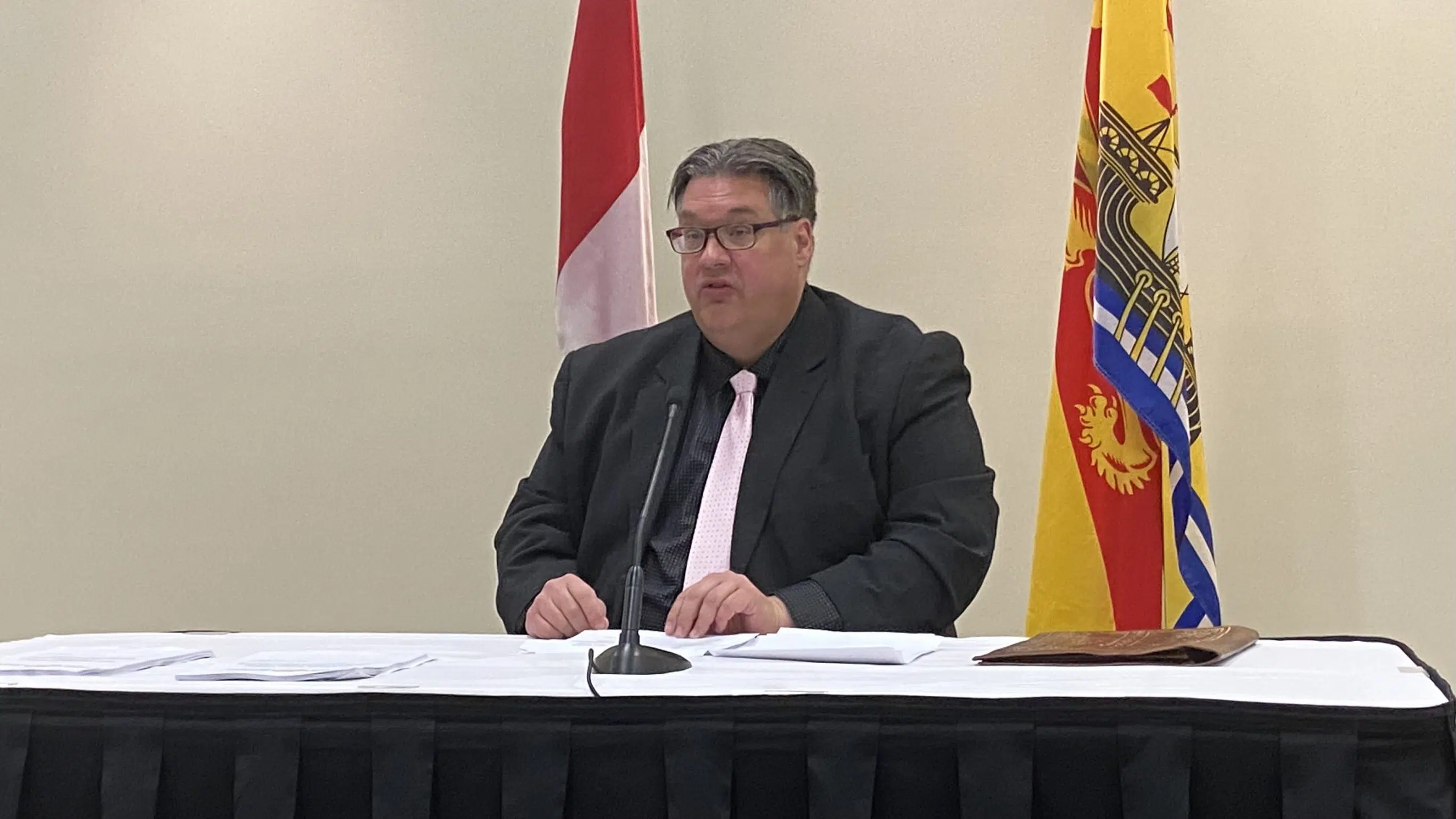New Brunswick’s updated gender identity and sexual orientation policy in schools violates children’s rights.
That was one of the findings in a report released Tuesday by Child and Youth Advocate Kelly Lamrock.
Lamrock began his review of Policy 713 as a result of a motion adopted in the provincial legislature two months ago.
The Liberal motion passed 26-20, with six Progressive Conservative MLAs voting alongside the opposition members.
“The finding for the purposes of this review is that the changes to Policy 713 place limits on a child’s legal rights to equality, privacy and accommodation,” Lamrock said in a news release.
It also violates the statutory conditions of several laws, he said, including the Human Rights Act, the Education Act, and the Canadian Charter of Rights and Freedoms.
Changes to the policy
Education Minister Bill Hogan made changes in three areas of the policy, though it was one change in particular that has garnered the most attention.
Teachers are no longer allowed to use a child under 16’s preferred name or pronoun, formally or informally, without parental consent.
Students have always required parental consent for their preferred first name and pronoun to be used for official records, however, there was nothing preventing a teacher from doing so informally.
The updated policy does not explicitly ban the informal use of preferred first names and pronouns, but Hogan has told reporters that teachers will require parental consent.
The Higgs government has said the change is meant to ensure parents are included in their children’s education, but Lamrock said the education department cannot simply waive the rights of children aside because “parents are uncomfortable with it.”
“The feedback from families with lived experience is that children do not delay the conversation out of a desire to exclude or delete parents. Trusting other adults is a step towards coming out to their parents,” he said.
“The chronology of coming out was not because parents were unimportant. Children explored and talked to others because their parents are important.”
Advocate’s recommendations
The advocate made a total of 24 recommendations and proposed an amended version of Policy 713 that he said would conform with legal obligations, all of which are non-binding.
Lamrock’s recommended policy says students should have the right to choose how to be addressed informally without parental consent starting at Grade 6.
If a child under Grade 6 requests an informal name or pronoun change, it would be up to the principal to assess the student’s capacity, he said.
Lamrock did not recommend any changes to the rule that requires children under 16 to get consent from their parents to make changes to their official records.
“It should be said that it is not bigoted for a parent to want to know about their child’s major decisions. Equally so, it is not extreme to want children to have privacy and autonomy when they are old and mature enough to exercise,” Lamrock wrote in his report.
“The fault with the changes to Policy 713 is they were pushed through to demonstrate rhetorical support for a principle, but failed to take the steps a government would take to approach a matter with competence and seriousness.”
The advocate has asked the province to make changes to its policy before Sept. 1. If not, he has also proposed a different policy that district education councils can use to close gaps in the provincial policy.
“Provincial policy takes precedent where the provincial policy is clear,” said Lamrock. “Where a policy is vague, the districts can fill in the details.”
Government party leaders respond
The leader of the Official Opposition said she is satisfied with the work that Lamrock has done.
Liberal leader Susan Holt said they want the government to commit to adopting the recommendations right away.
“We believe that teachers and parents and students deserve clarity prior to starting school in September, so we are looking for an urgent response from the government,” Holt told reporters Tuesday afternoon.
Holt said if the government does not act, her concern is for the safety of teachers and students.
She said students have already reported being harmed because of this government’s words and actions.
“This report makes clear the law and the responsibility of government to create policies within those laws,” said Holt.
The advocate’s report is also receiving praise from New Brunswick’s Green Party leader.
David Coon said the report lays out in detail how Policy 713 violates the rights of children.
“It’s very helpful to have that legal framework to underlie the recommendations he’s made and frankly to support the tenets of the original policy,” said Coon.
Coon said he does not have confidence that the premier or education minister will implement the recommendations.
However, he believes district education councils will take the advocate’s advice and make their own policies.
“This will, I think, give all the district education councils the clarity and the evidence to move forward in the appropriate way to ensure we don’t have chaos in our schools in September,” said Coon.
“The most important thing is that the students are protected, that the teachers have clear direction, that they’re not acting in violation of laws.”
The education minister did not make himself available for comment on Tuesday.








